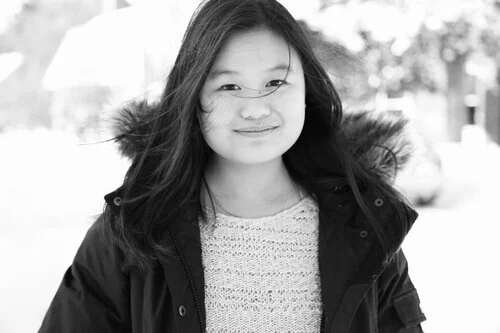Q Chats | Anti-Racism | Week 2
Q Christian is a community comprised of people with diverse backgrounds, differing theological beliefs, and a variety of ethics. Q Chats are designed to be a deep dive into self-discovery by learning from one another, and spiritually growing side-by-side. Q Chats cannot be effective without you! We invite you to participate. Share your thoughts, stories, and perspectives. Your influential voice can make a difference in the lives of others.
Bukola Landis-Aina
In religious spaces, my race, gender and sexual orientation most often can be barriers to belonging. Even when a pastor is affirming, the experience of coming out to each and every member of the community can become exhausting and stressful. Being a woman who often gets drawn towards leading can also be problematic when there are overt or covert rules against recognizing women as religious leaders.
Sarah Ngu
Often queer people of color have to choose between churches that are affirming but mostly white, or churches that are have a lot of people of color but are non-affirming. It’s a hard choice.
But when I enter religious spaces, I do not need to worry about being surveilled when I go to church, in contrast to my Muslim siblings. I do not need to worry about a gunman in contrast to my Jewish siblings and people who attend black churches.
Erica Lea-Simka
As a pastor, I recognize my privilege as a faith leader. I take strategic measures to balance my leadership with appropriate expressions of privilege in my community and congregation. For example, I choose to be an ex-officio member of my congregation. I am a member, but I abstain from voting at congregational meetings. Any congregational decisions requiring a vote in our congregational consensus model I would have already commented on and/or otherwise expressed leadership. I will not be in a position to be a deciding vote for a collective decision.
Even as a pastor who is somewhat known in my local community and visually identifiable by a clergy collar, I do not visit other houses of worship unannounced–especially Muslim, Jewish, Sikh, and African-American communities. Acts of violence by white “Christian” terrorists in recent years has led me to a deeper awareness of how my presence can be received in spaces that are not white and Christian.
Jessica Wang
Being Christian inherently comes with a religious privilege in the United States. Historically, Christians have been the colonizers and the bearers of a forced religion. So, on the outside perspective, I am already privileged because I identify with a privileged religion. However, within the religion, being an Asian-American in a predominantly and historically white-centered faith makes me often feel as if I were an outsider or a foreigner. I will often question whether my taking on the religion of Christianity as a person of color is a form of submitting to the oppressor.
When I moved from an all-Chinese church to a predominantly white church, we gave up the comfort of belonging in exchange for theology that aligned with our beliefs. When I was church shopping during my high school years, I realized that many affirming churches that aligned with my theological beliefs were predominantly white. On the other hand, any churches that celebrated my ethnicity and cultural background were likely more conservative. This is a result of a number of factors, but I think the traditional Chinese culture of filial piety and self-sacrifice often attracts people to the more conservative American evangelical culture.
Laura Beth-Buchleiter
As a transwoman, I was once asked by a male pastor why I would “take a demotion.” In other words, he was asking why I would give up the space of straight, cis, white, male in a church culture where that position is over-glorified. Most often I see myself caught in the “between”. Women have roles. Men have roles. Those who might be perceived as somehow both and yet neither have no defined role in most religious cultures. The vacuum left by the lack of definition leaves us without a voice, unless we create one of our own.
Kevin Garcia
Growing up in evangelicalism, the language with which I speak about faith is understood. The style of worship I enjoy is usually present. Often times, all the things I've named before allow me to have a certain amount of clout in religious circles.








